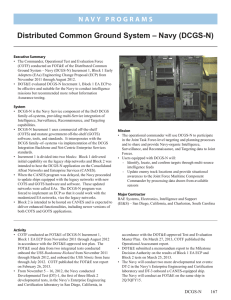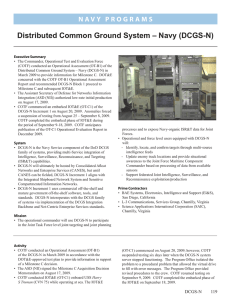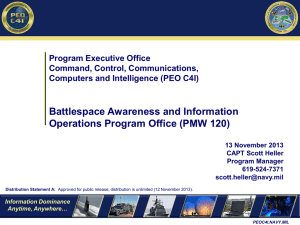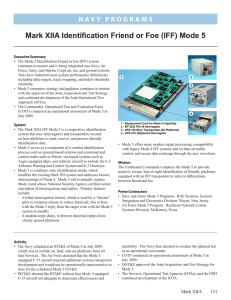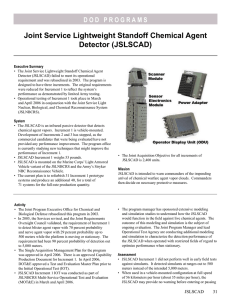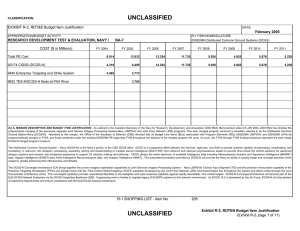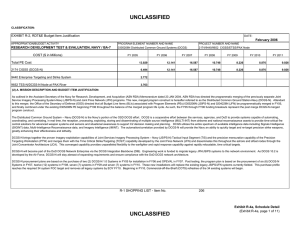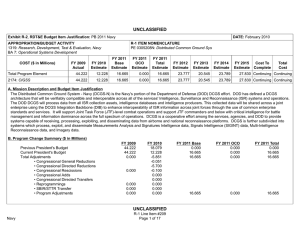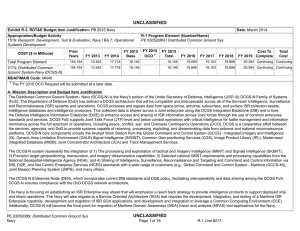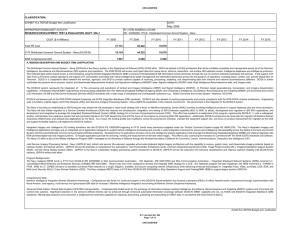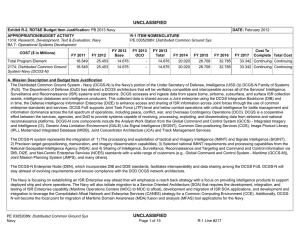DCGS-N Program Report: Navy ISR&T System Evaluation
advertisement
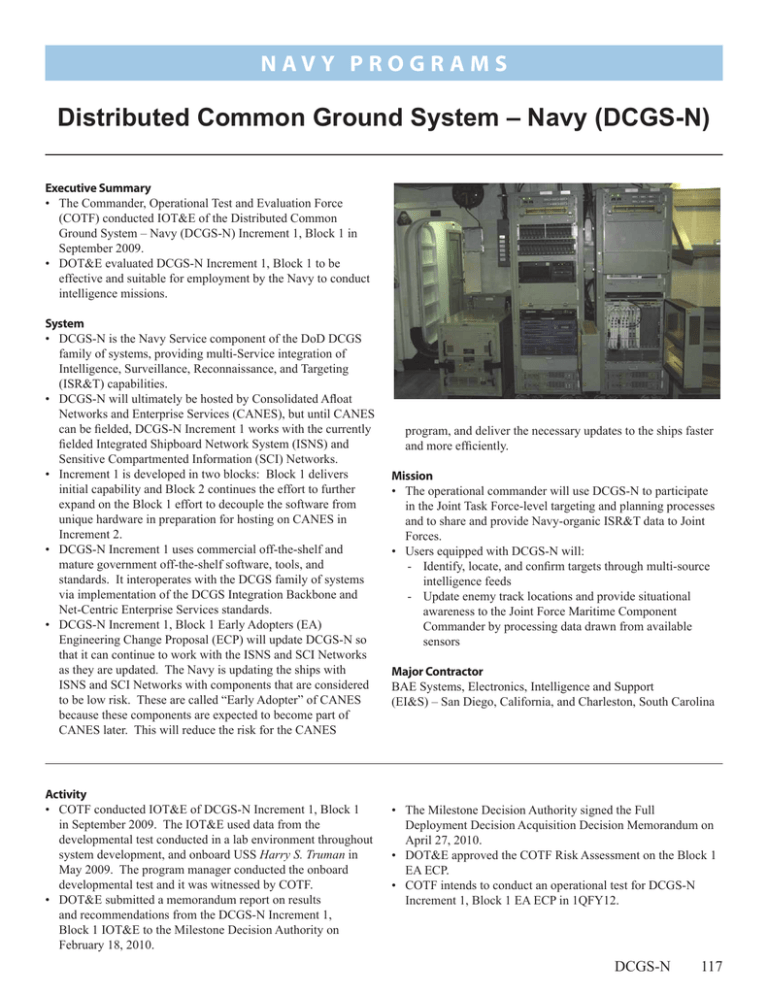
N a v y P ROGRAMS Distributed Common Ground System – Navy (DCGS-N) Executive Summary • The Commander, Operational Test and Evaluation Force (COTF) conducted IOT&E of the Distributed Common Ground System – Navy (DCGS-N) Increment 1, Block 1 in September 2009. • DOT&E evaluated DCGS-N Increment 1, Block 1 to be effective and suitable for employment by the Navy to conduct intelligence missions. System • DCGS-N is the Navy Service component of the DoD DCGS family of systems, providing multi-Service integration of Intelligence, Surveillance, Reconnaissance, and Targeting (ISR&T) capabilities. • DCGS-N will ultimately be hosted by Consolidated Afloat Networks and Enterprise Services (CANES), but until CANES can be fielded, DCGS-N Increment 1 works with the currently fielded Integrated Shipboard Network System (ISNS) and Sensitive Compartmented Information (SCI) Networks. • Increment 1 is developed in two blocks: Block 1 delivers initial capability and Block 2 continues the effort to further expand on the Block 1 effort to decouple the software from unique hardware in preparation for hosting on CANES in Increment 2. • DCGS-N Increment 1 uses commercial off-the-shelf and mature government off-the-shelf software, tools, and standards. It interoperates with the DCGS family of systems via implementation of the DCGS Integration Backbone and Net-Centric Enterprise Services standards. • DCGS-N Increment 1, Block 1 Early Adopters (EA) Engineering Change Proposal (ECP) will update DCGS-N so that it can continue to work with the ISNS and SCI Networks as they are updated. The Navy is updating the ships with ISNS and SCI Networks with components that are considered to be low risk. These are called “Early Adopter” of CANES because these components are expected to become part of CANES later. This will reduce the risk for the CANES Activity • COTF conducted IOT&E of DCGS-N Increment 1, Block 1 in September 2009. The IOT&E used data from the developmental test conducted in a lab environment throughout system development, and onboard USS Harry S. Truman in May 2009. The program manager conducted the onboard developmental test and it was witnessed by COTF. • DOT&E submitted a memorandum report on results and recommendations from the DCGS-N Increment 1, Block 1 IOT&E to the Milestone Decision Authority on February 18, 2010. program, and deliver the necessary updates to the ships faster and more efficiently. Mission • The operational commander will use DCGS-N to participate in the Joint Task Force-level targeting and planning processes and to share and provide Navy-organic ISR&T data to Joint Forces. • Users equipped with DCGS-N will: - Identify, locate, and confirm targets through multi-source intelligence feeds - Update enemy track locations and provide situational awareness to the Joint Force Maritime Component Commander by processing data drawn from available sensors Major Contractor BAE Systems, Electronics, Intelligence and Support (EI&S) – San Diego, California, and Charleston, South Carolina • The Milestone Decision Authority signed the Full Deployment Decision Acquisition Decision Memorandum on April 27, 2010. • DOT&E approved the COTF Risk Assessment on the Block 1 EA ECP. • COTF intends to conduct an operational test for DCGS-N Increment 1, Block 1 EA ECP in 1QFY12. DCGS-N 117 N a v y P ROGRAMS Assessment • DOT&E evaluated the DCGS-N Increment 1, Block 1 system to be effective and suitable. It can support all Navy ISR&T missions. • The Navy employed an efficient integrated T&E strategy that measured system performance operated by sailors in a developmental test that was conducted in a lab environment, followed by a validation during the embarked phase of developmental testing. This strategy reduced the risk and data requirement for the IOT&E conducted at sea. 118 DCGS-N • DOT&E agreed that the appropriate level of testing for EA ECP is a full operational test. Recommendations • Status of Previous Recommendations. The Navy addressed all previous recommendations. • FY10 Recommendations. None.
